This was the first Near Space Adventure opportunity for the general public that was offered through the Strategic Air and Space Museum. All of our previous launches were a part of a college or school activity or camps for certain age groups. This was an experience that had the participants be a part of the building of an experiment, the launch crew, and the chase and recovery team, all in one day!
The Near Space Adventurers had a continental breakfast at the museum starting at 8:00 am where they learned about ballooning and what the day was going to be like. With the given materials and probes, they could select an experiment to do and prepared their pods.
After the groups attached the lines for their pods together, they started to fill the balloon in the restoration hanger. Even though there was no wind, the balloon handlers took their job of protecting the balloon very seriously.
The payload weight was about 5 lb. and Michael put about 11 lbs. of lift in the balloon. Usually, we try to to fill to a lift of twice the weight, but we put a little extra in to try to shorten the flight time with this workshop. The hangar doors were opened and the string of payloads walked out to where we could get a GPS lock before it was launched.
The following images are some still photos from the video taken from the Go Pro Camera on one of the pods. Near Space Adventurers, feel free to download these images and share them however you like.
The software worked seamlessly throughout the flight.
The prediction software we used, once again, provided a surprisingly accurate forecast. The actual touch-down zone was within 3 miles of the prediction.
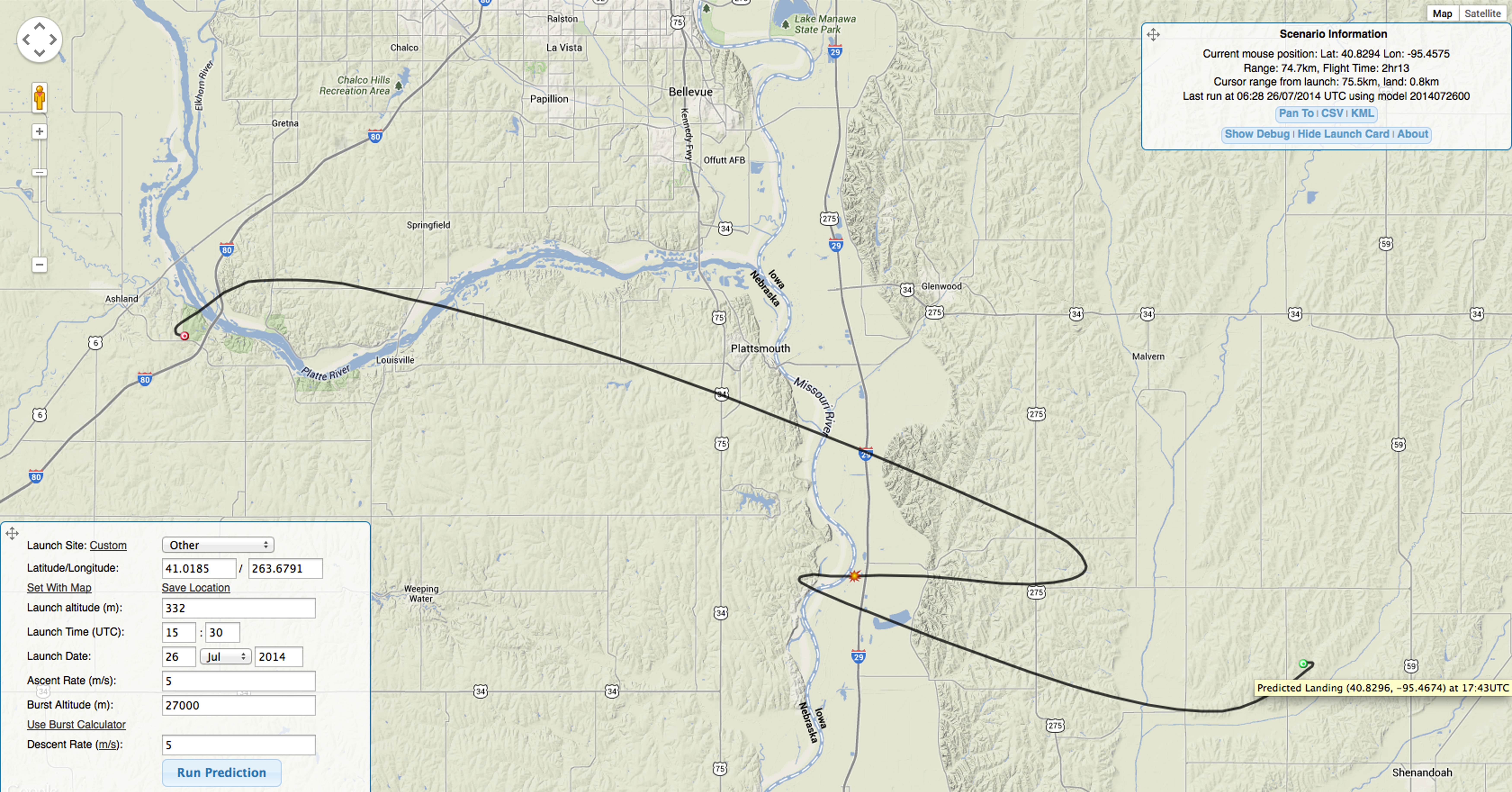
The temperature on the road was not too bad with a breeze on this warm day, but in the corn, it was about 100 degrees and very humid. It landed right in the middle of a field (about a 0.4 mile walk to get it and a 0.4 mile walk out), so it was brutal on the recovery team. 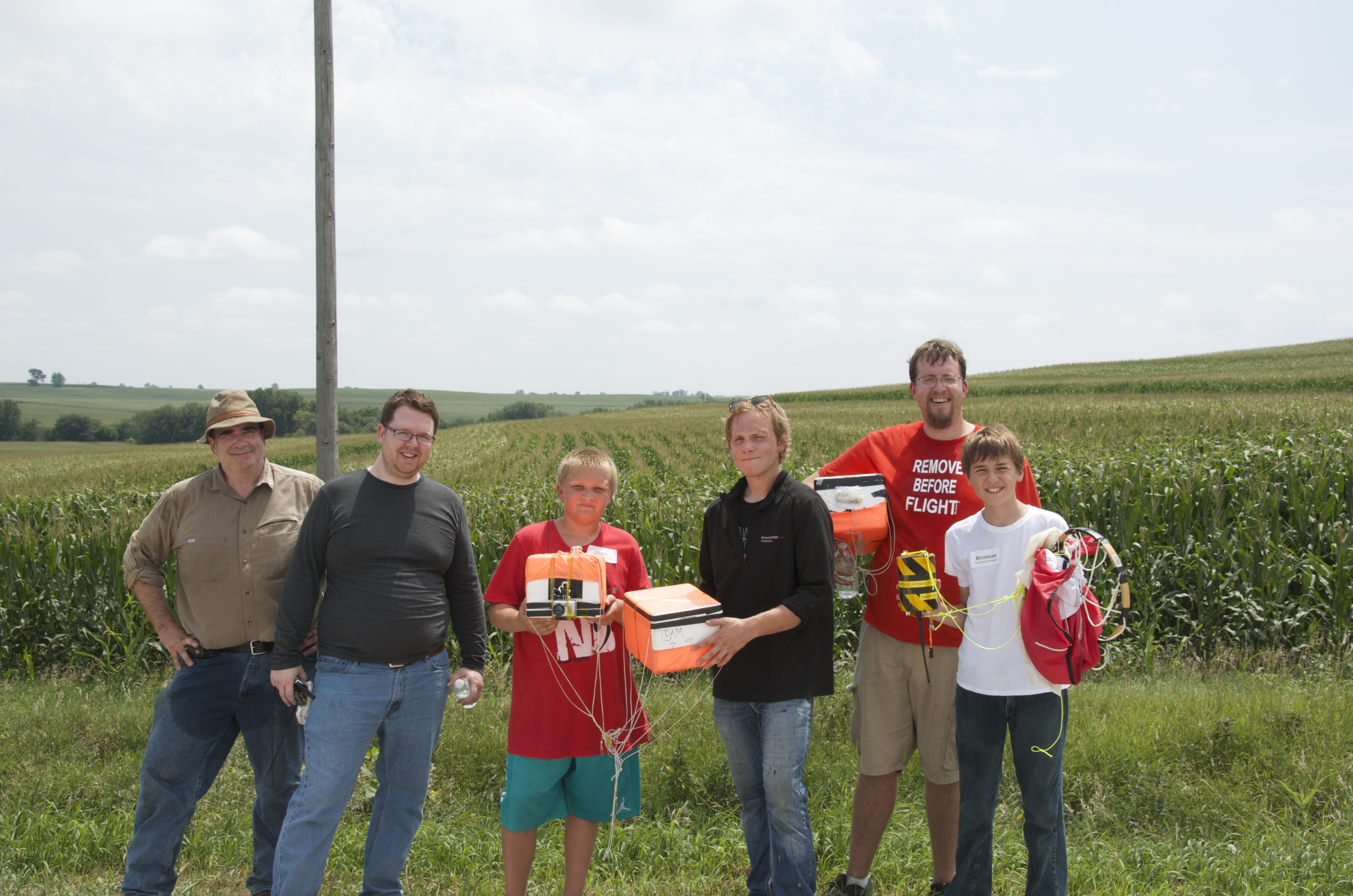
Congratulations to the team on an excellent Near Space Adventure! We will be adding additional information from the experiments as we are able to make them available.
*Edited to Add*
The marshmallow experiment used a camera within the pod to watch how marshmallows changed over the course of a flight. The balloon made it to approximately 80,000 feet so the expansion was fairly subtle on the ascent, however, the compression on the way down was faster and nicely visible. This video from inside the pod is sped up x125. The apparent flickering is the caused by the changes in the light as the pod spins upon descent.
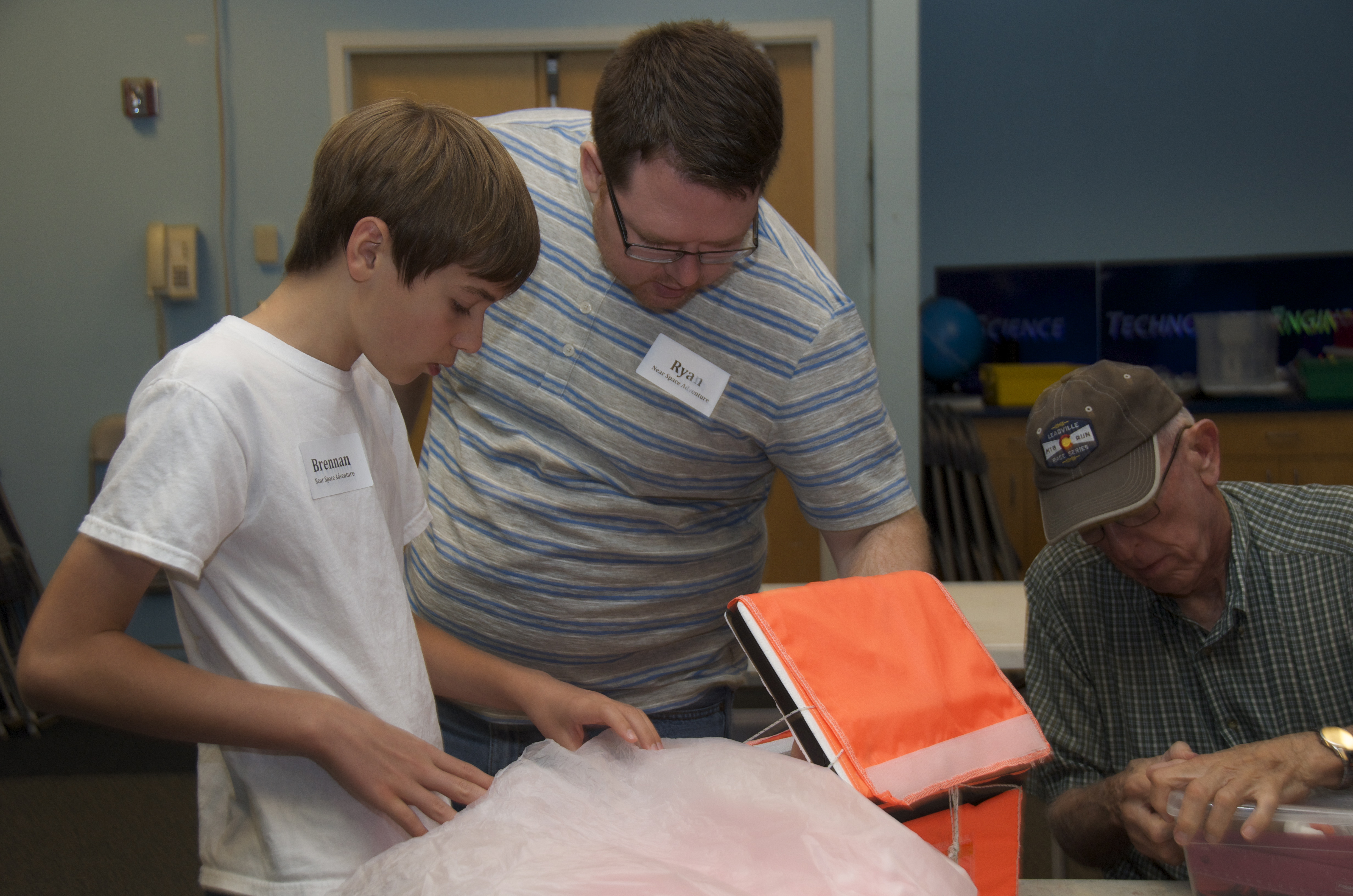
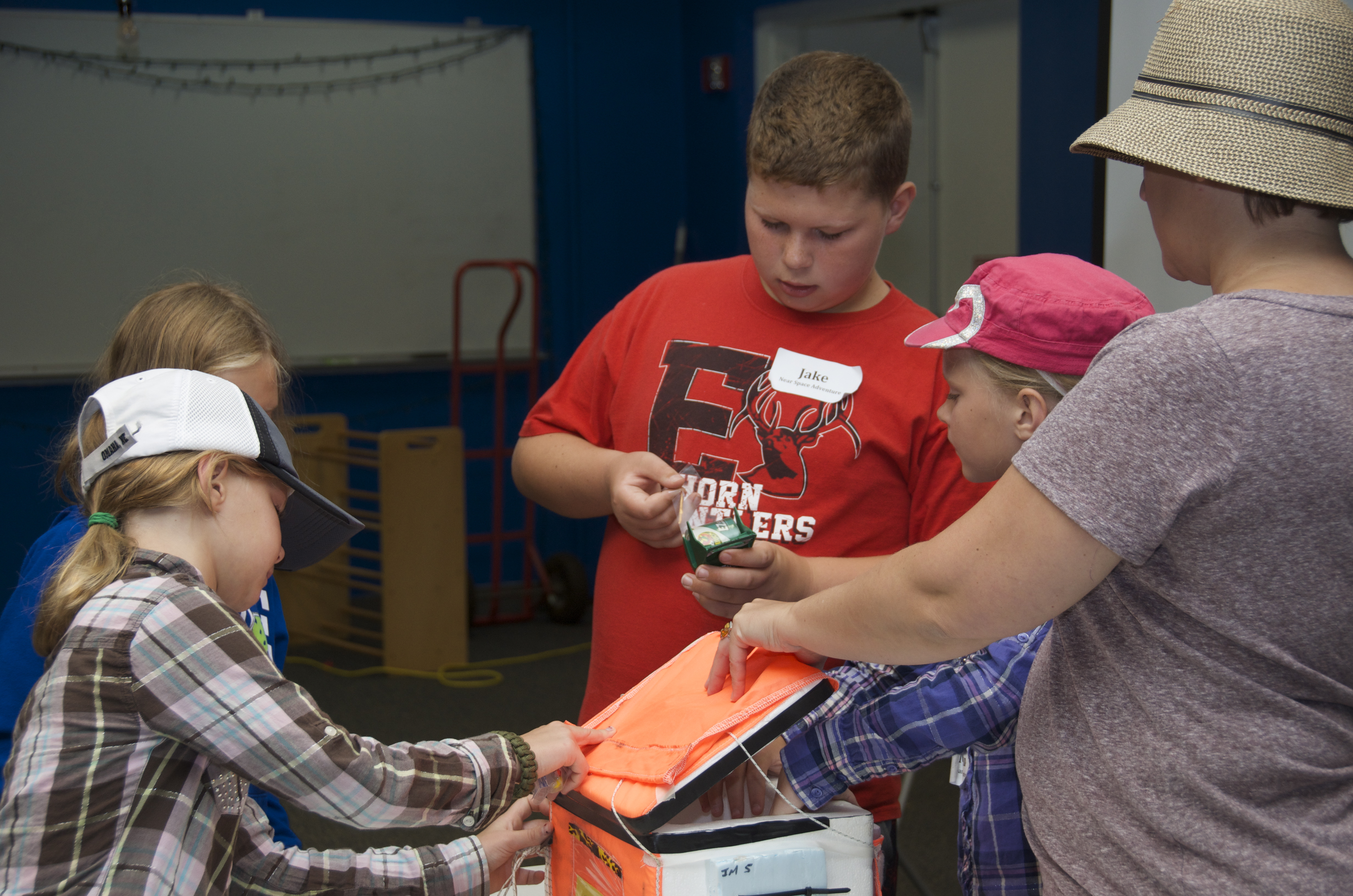
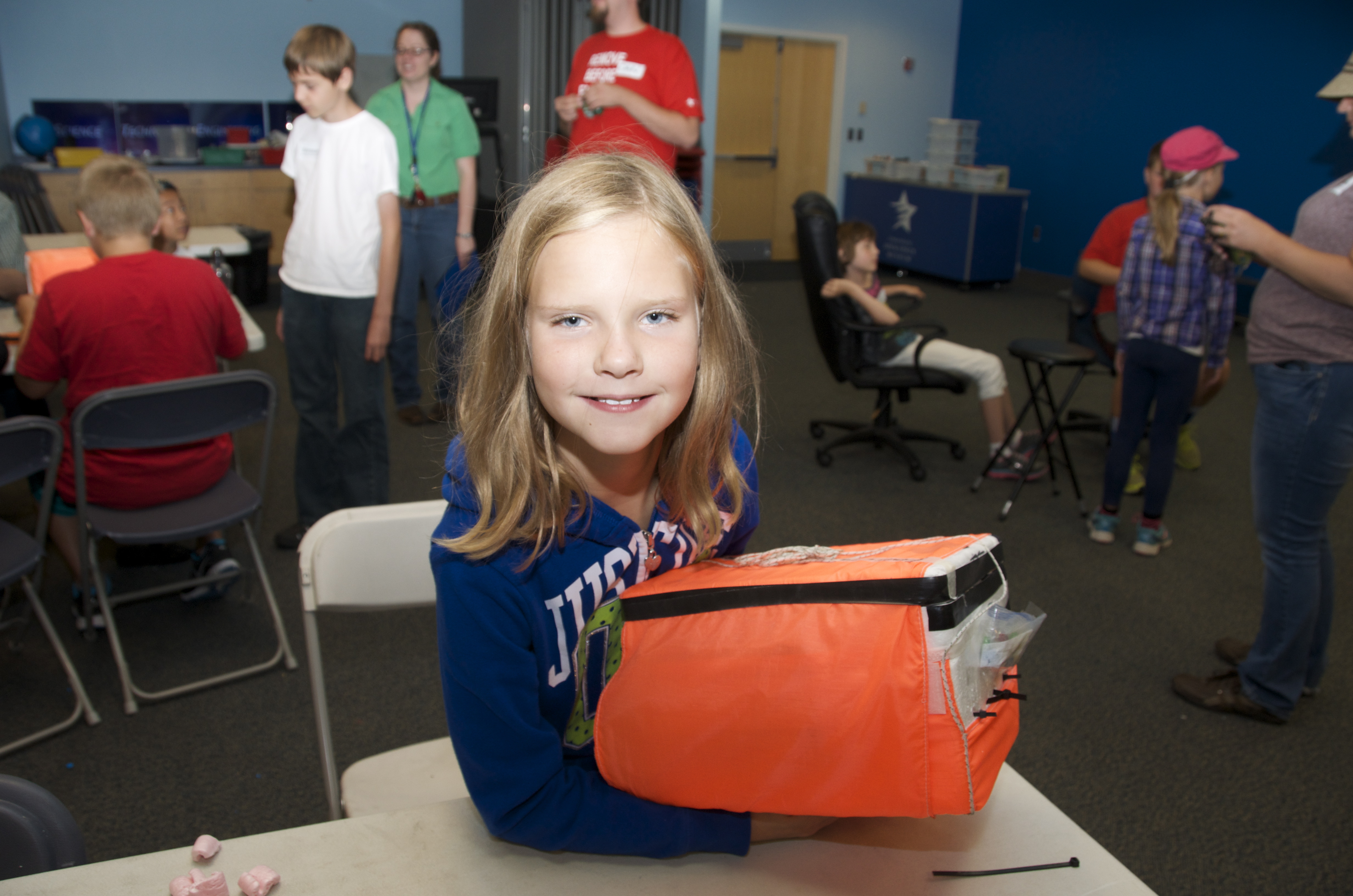

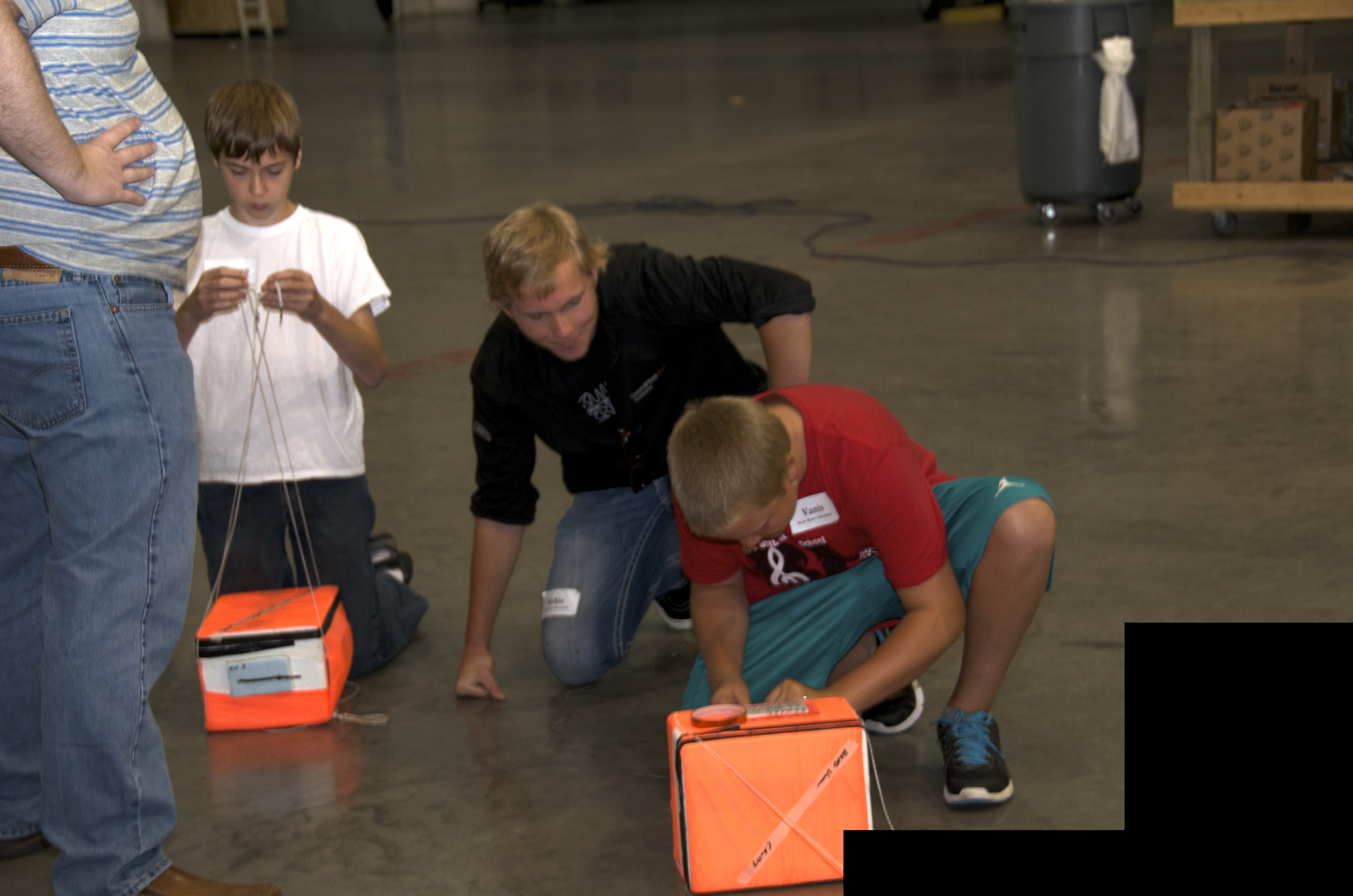
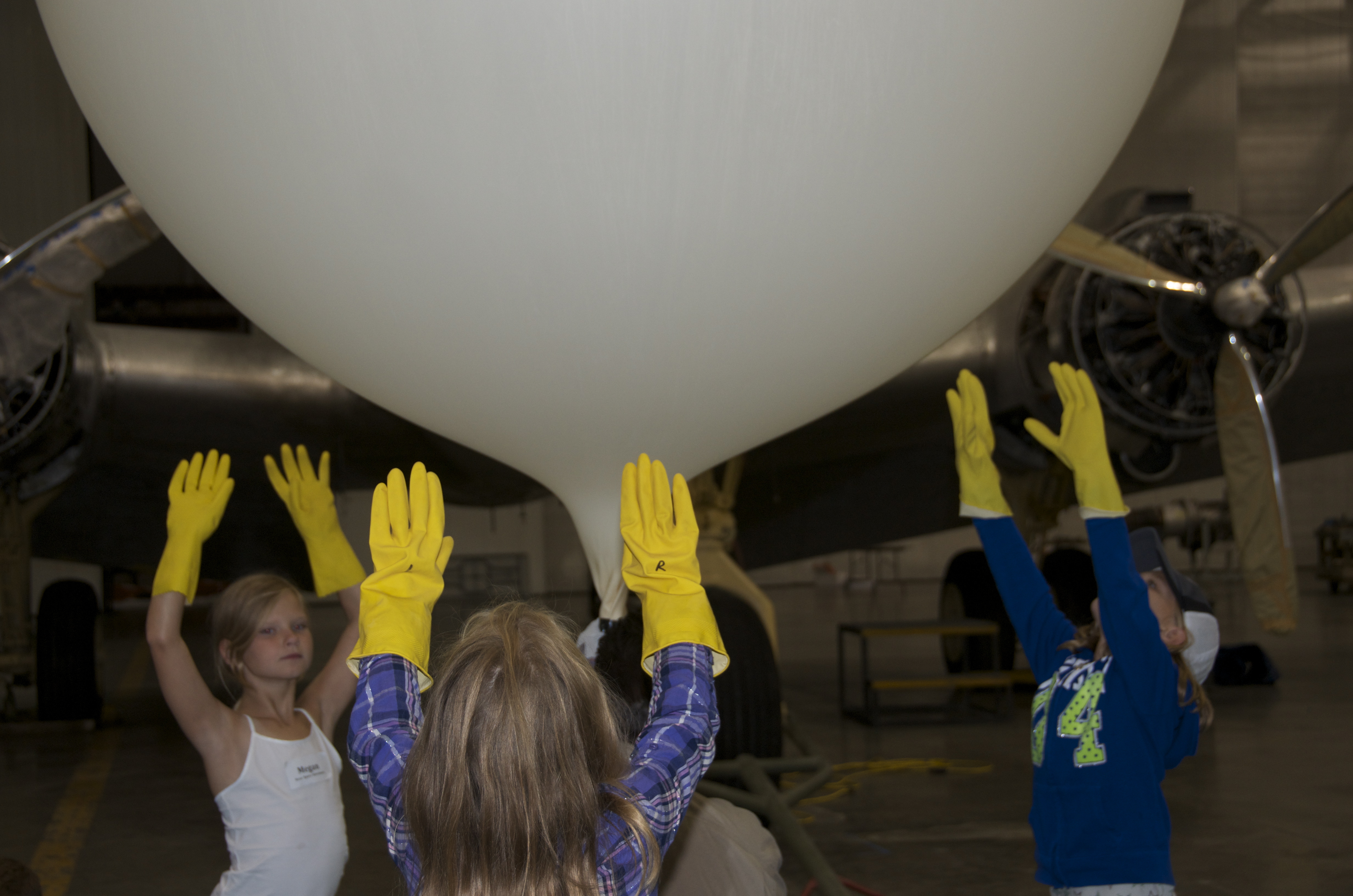
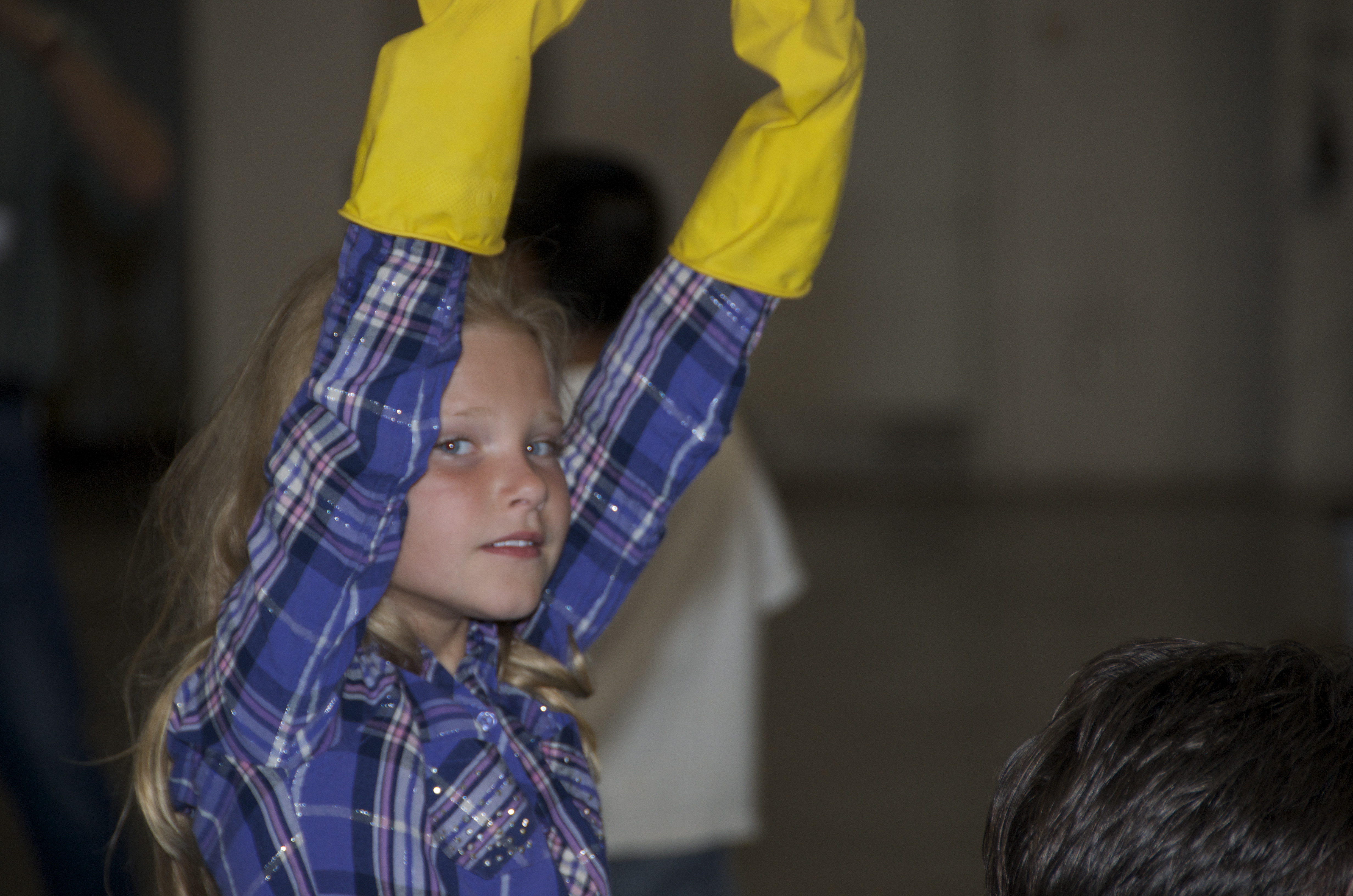
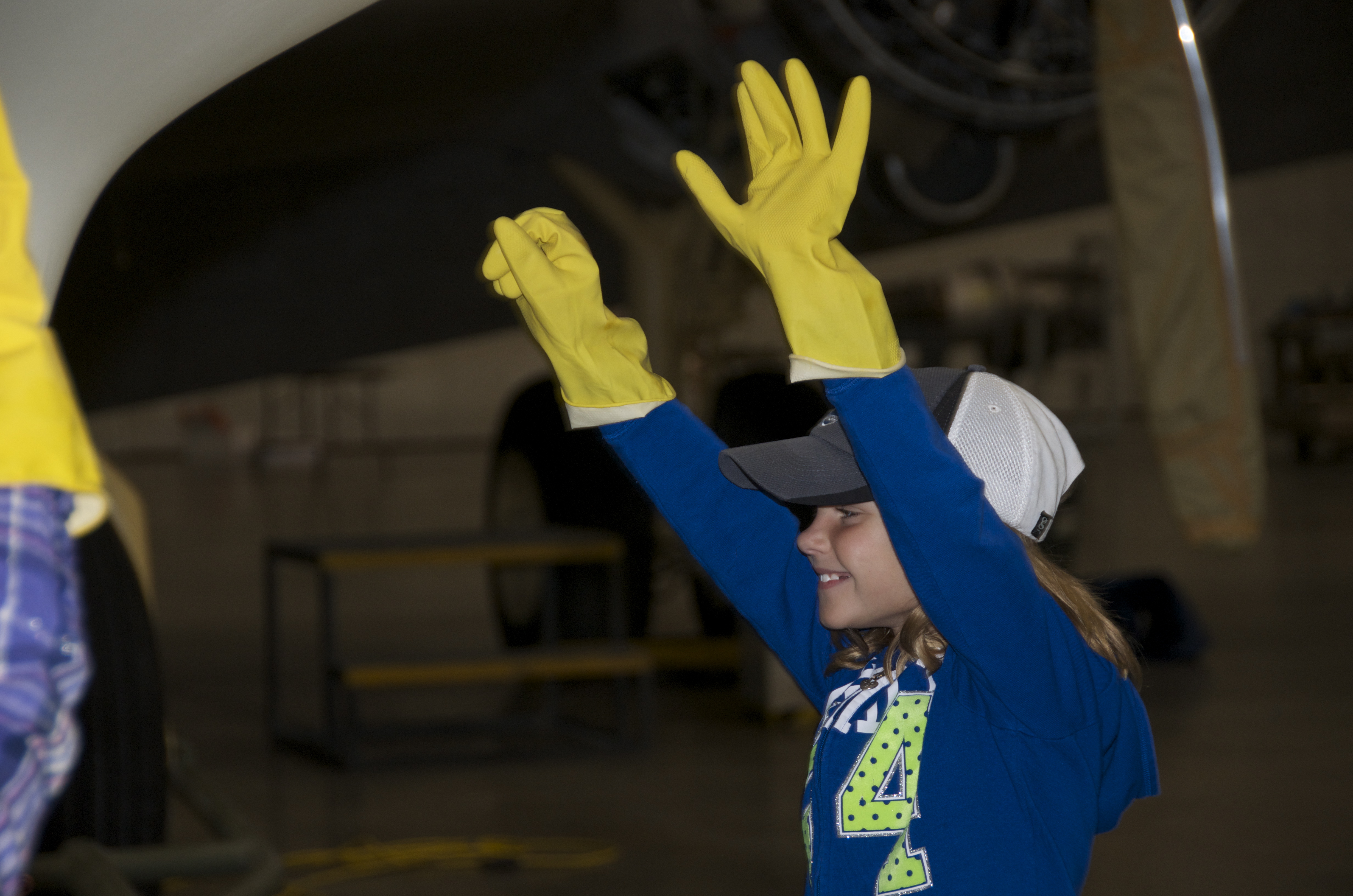
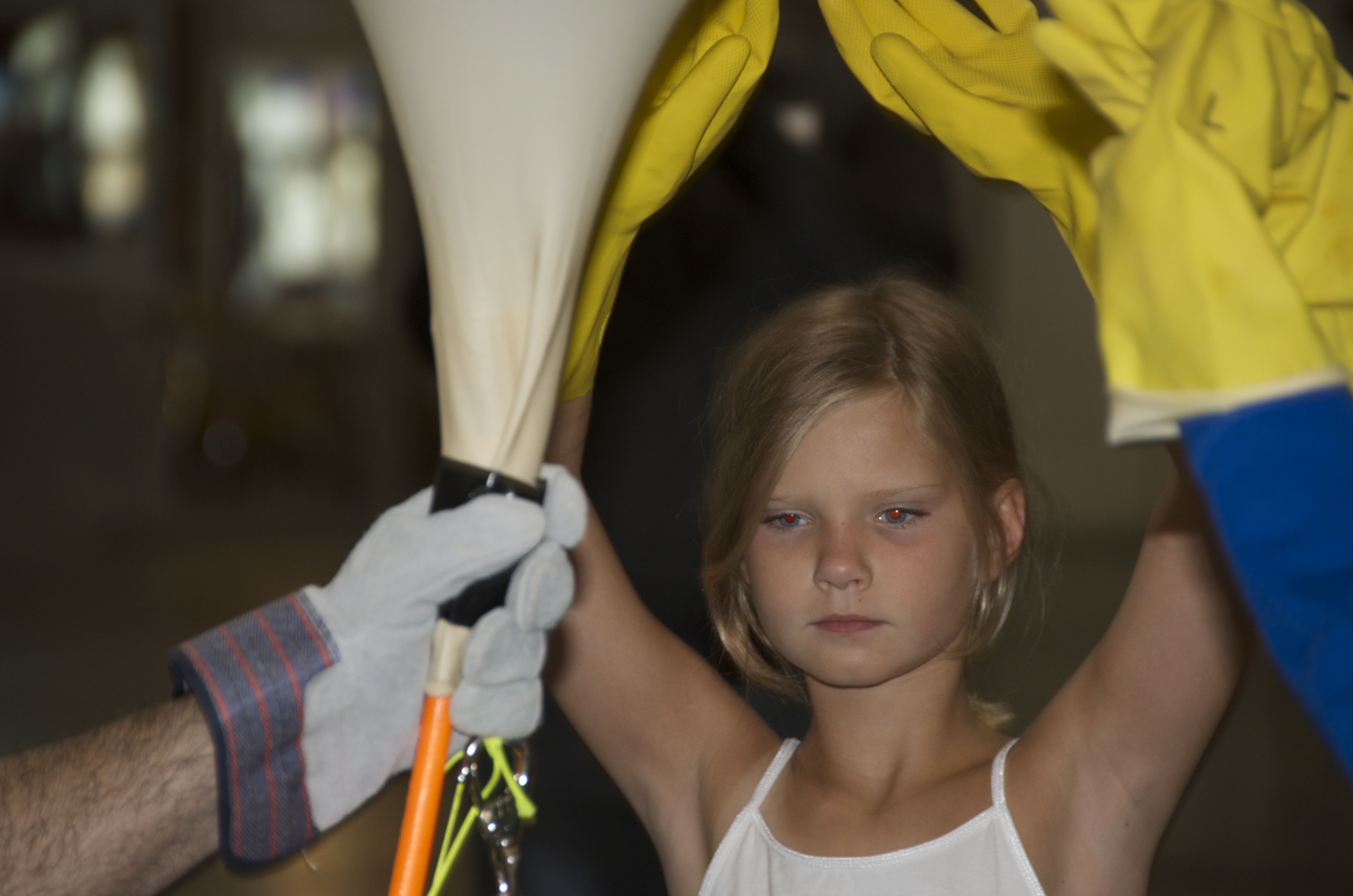
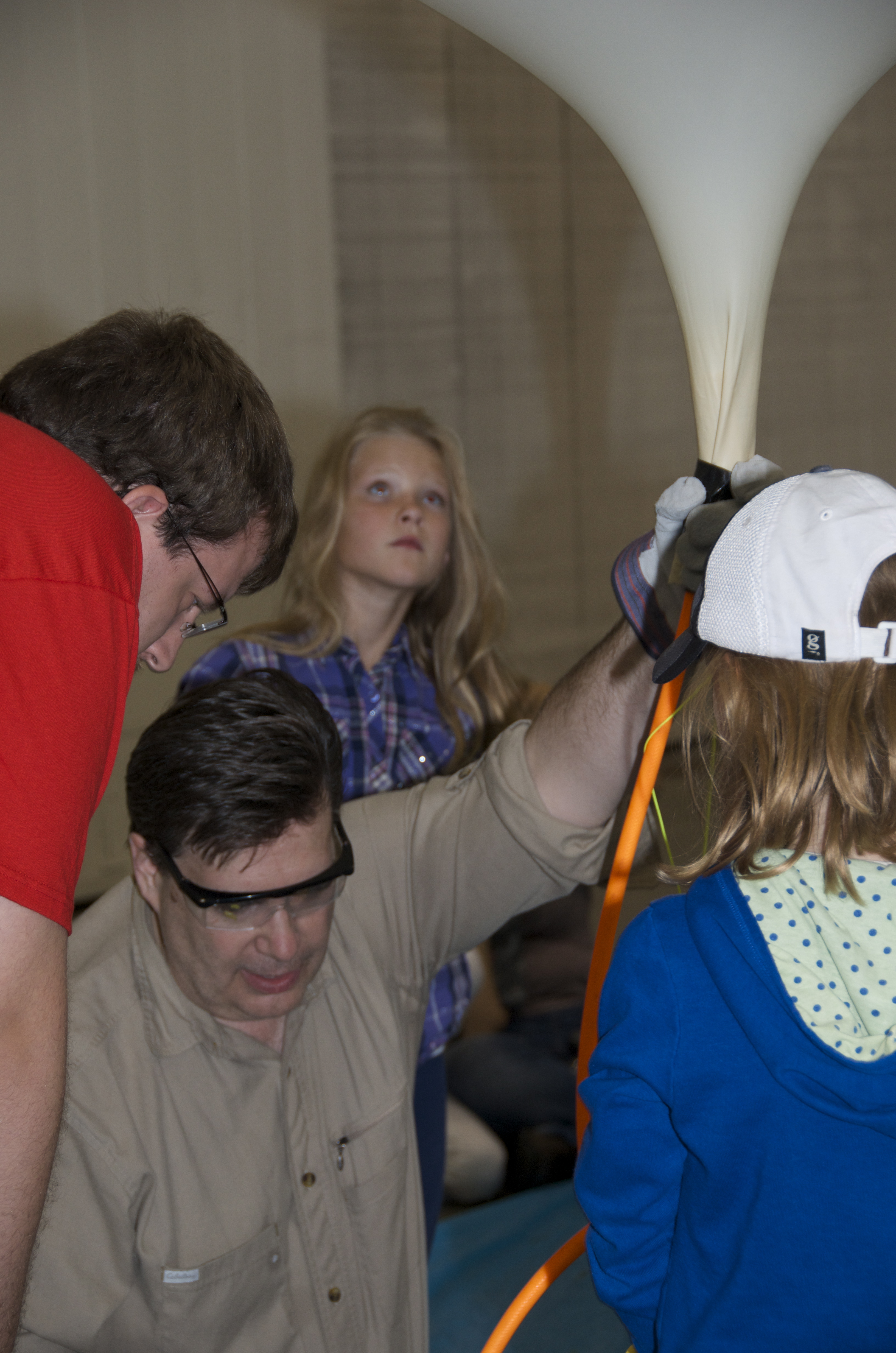
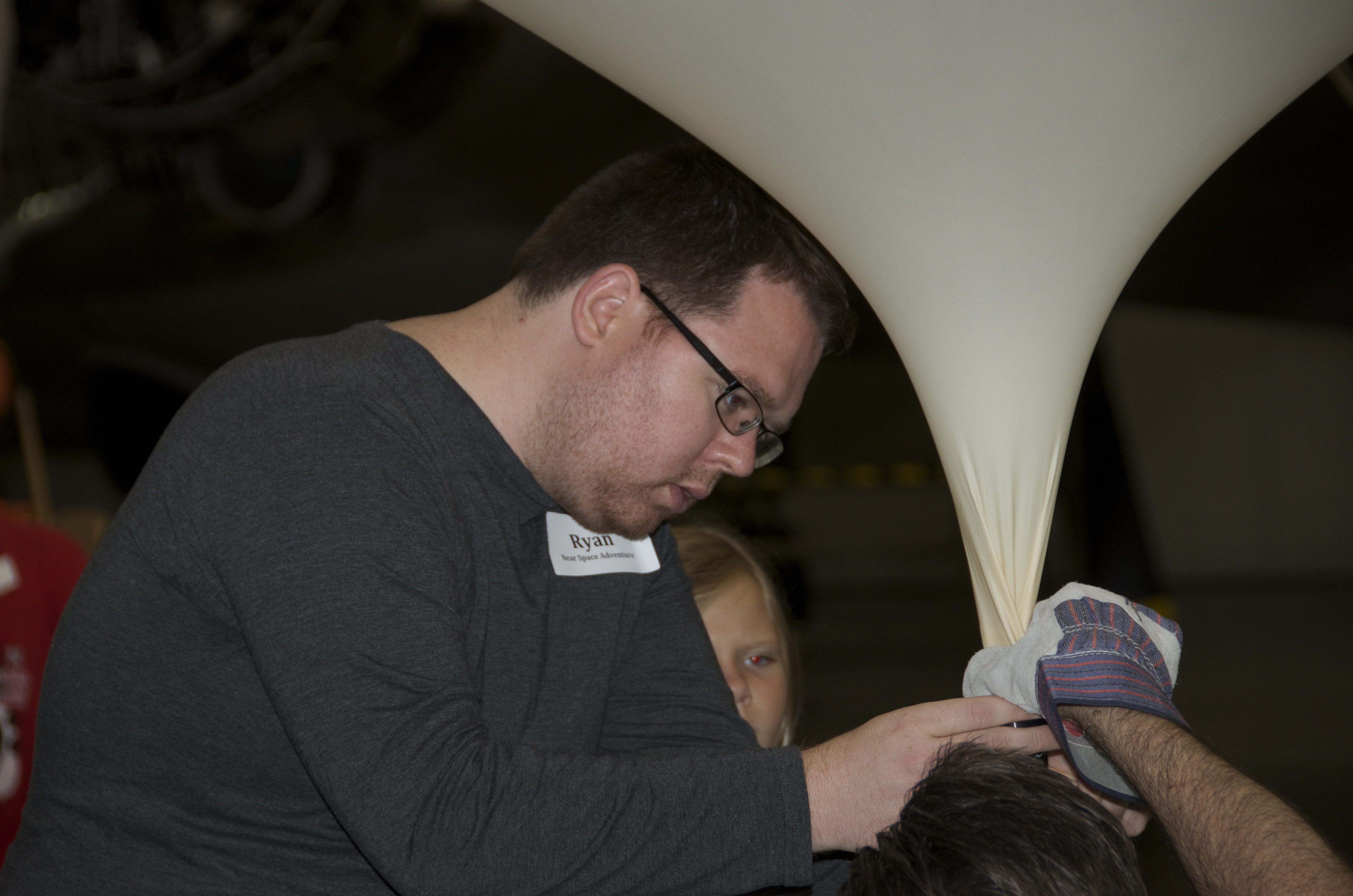
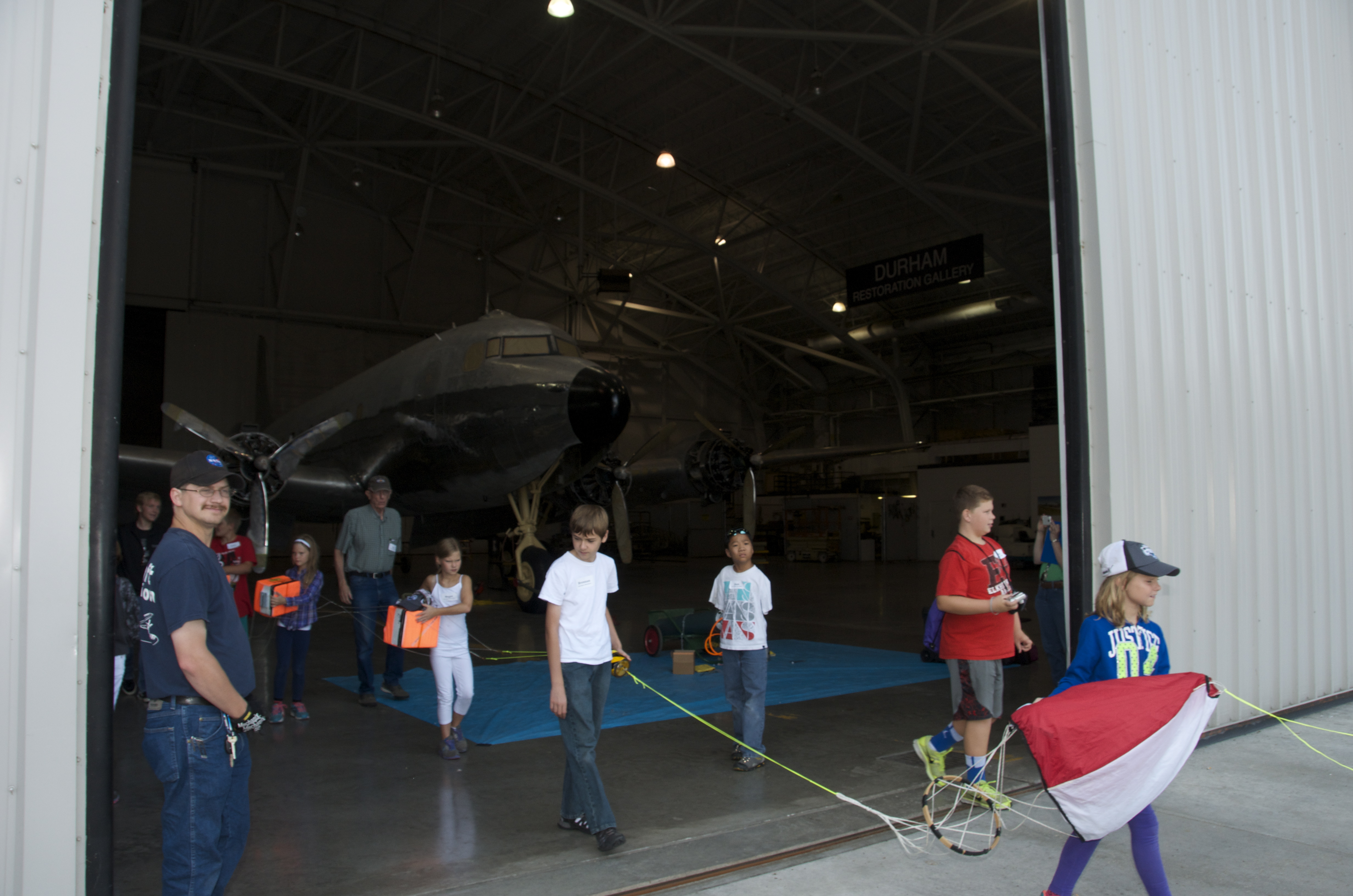
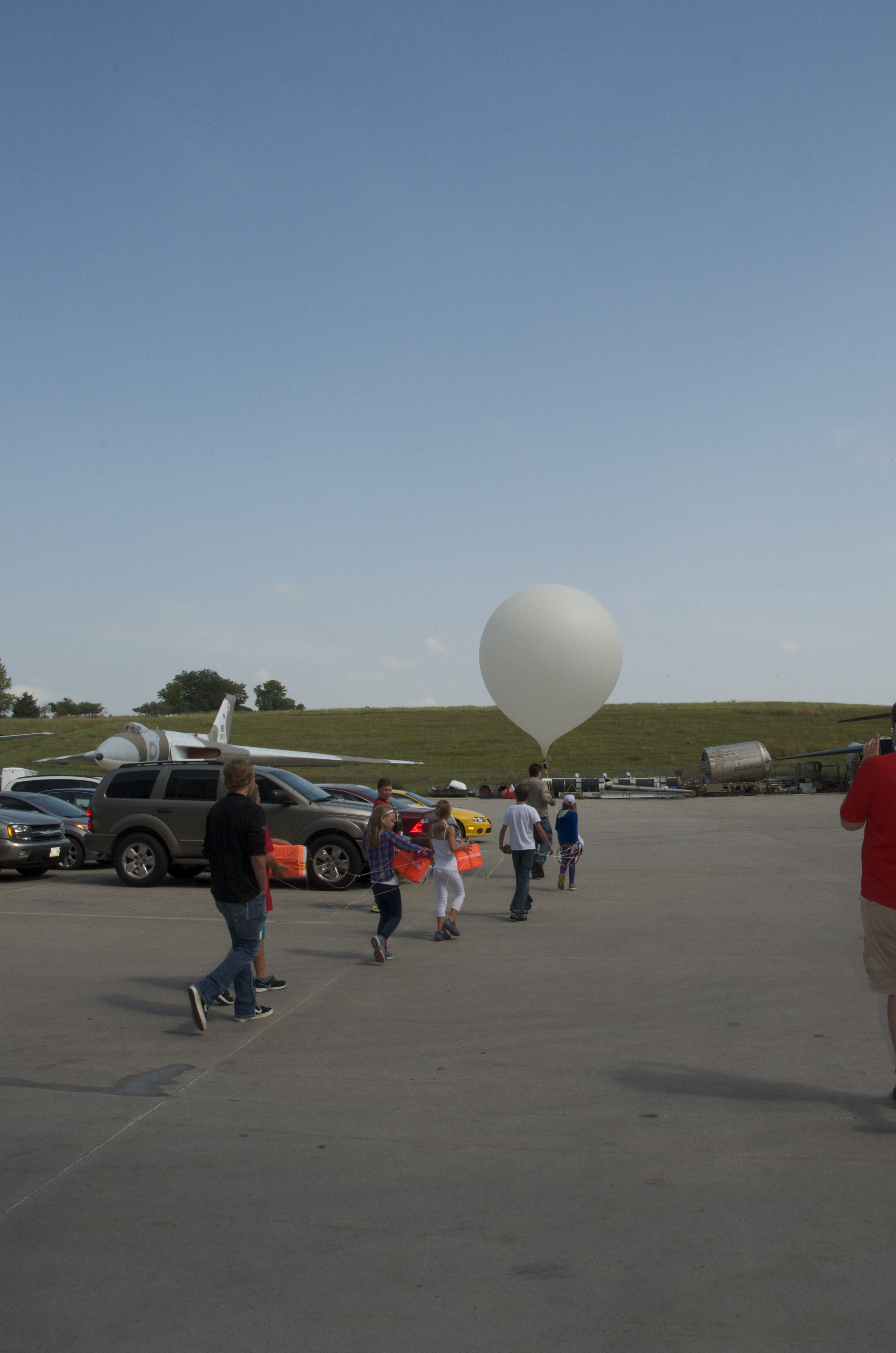
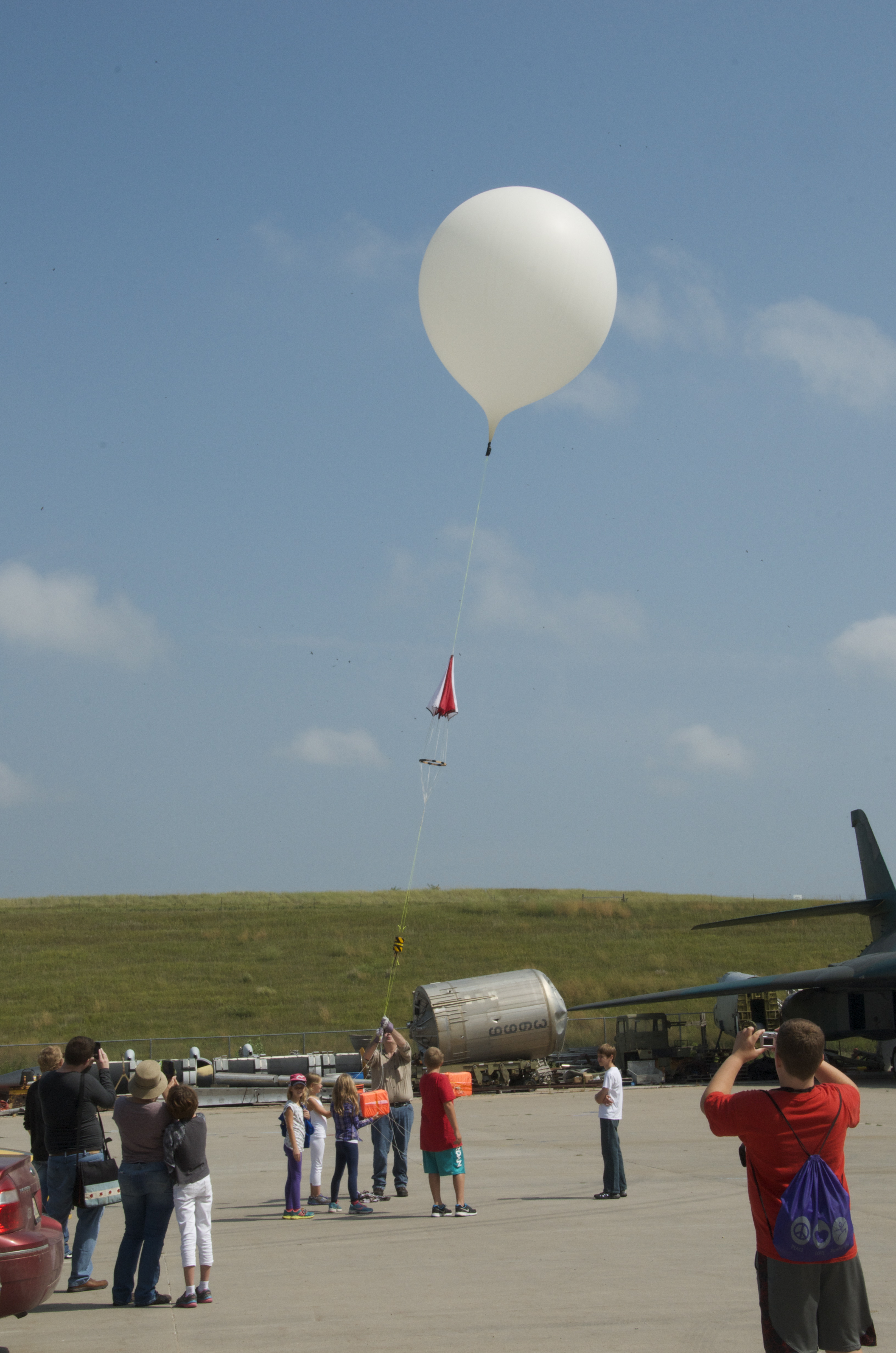
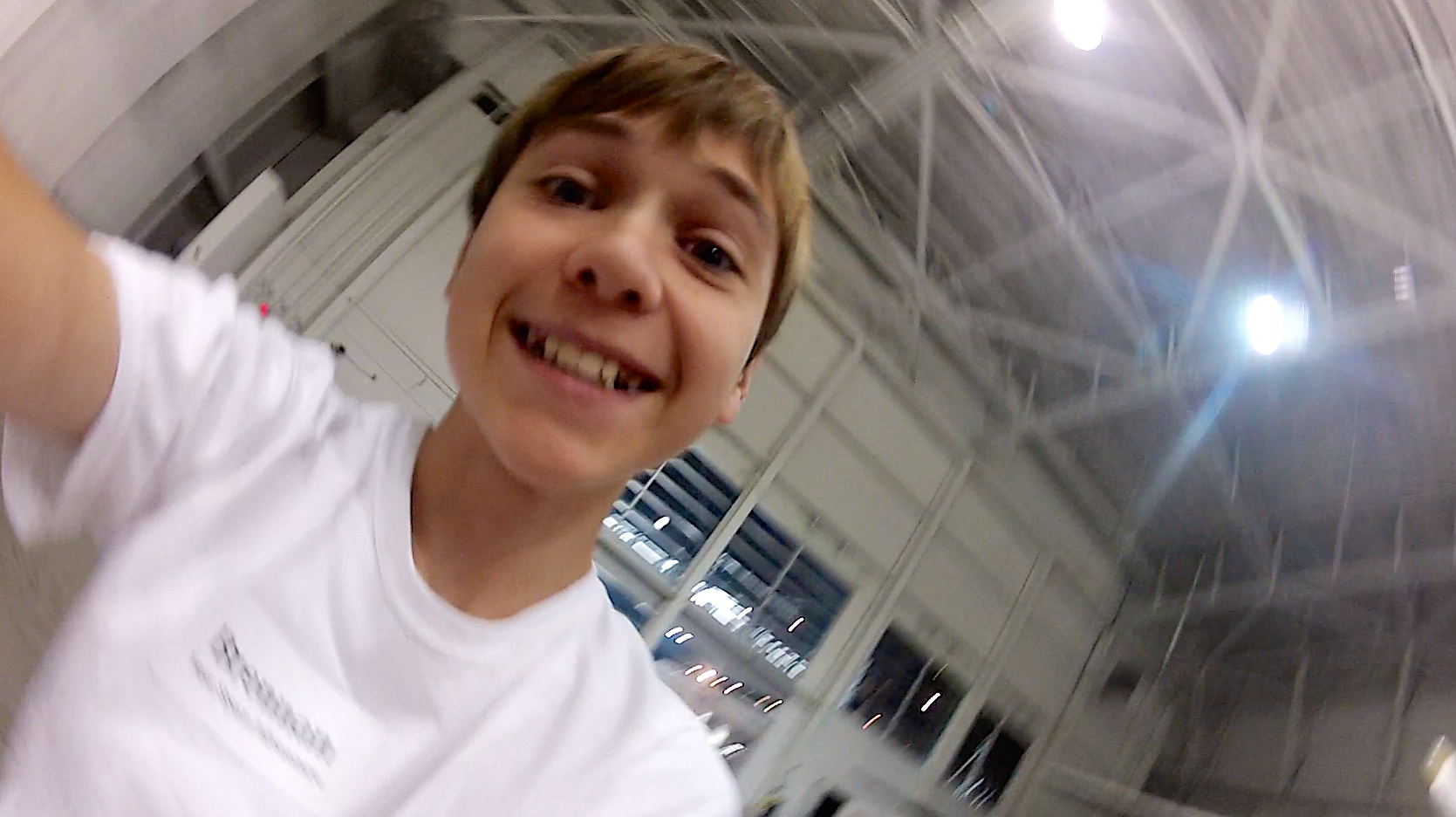
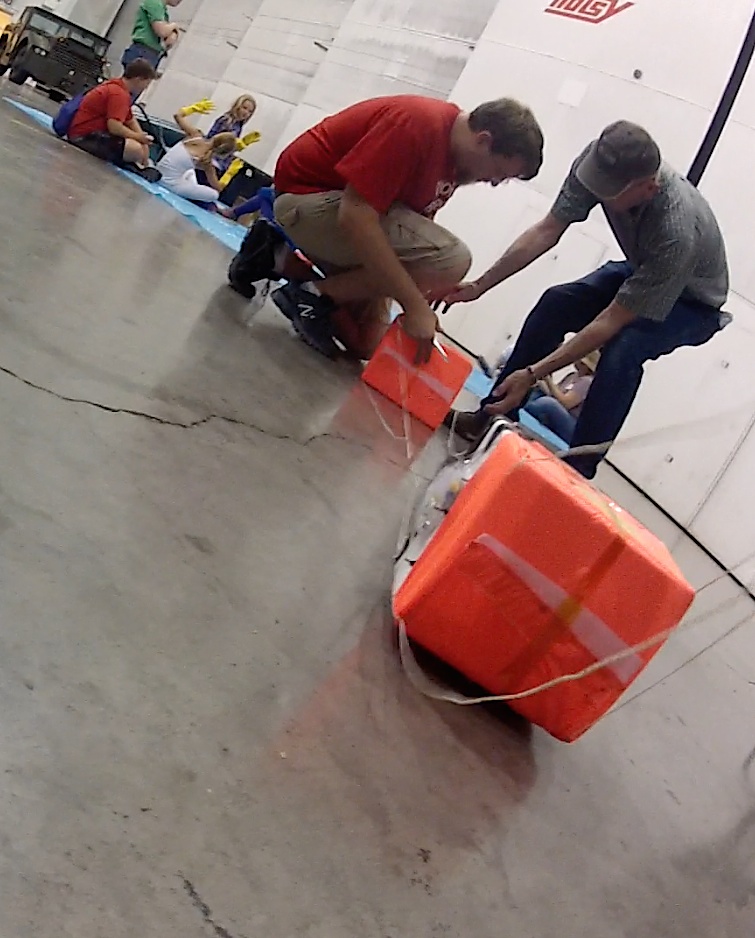
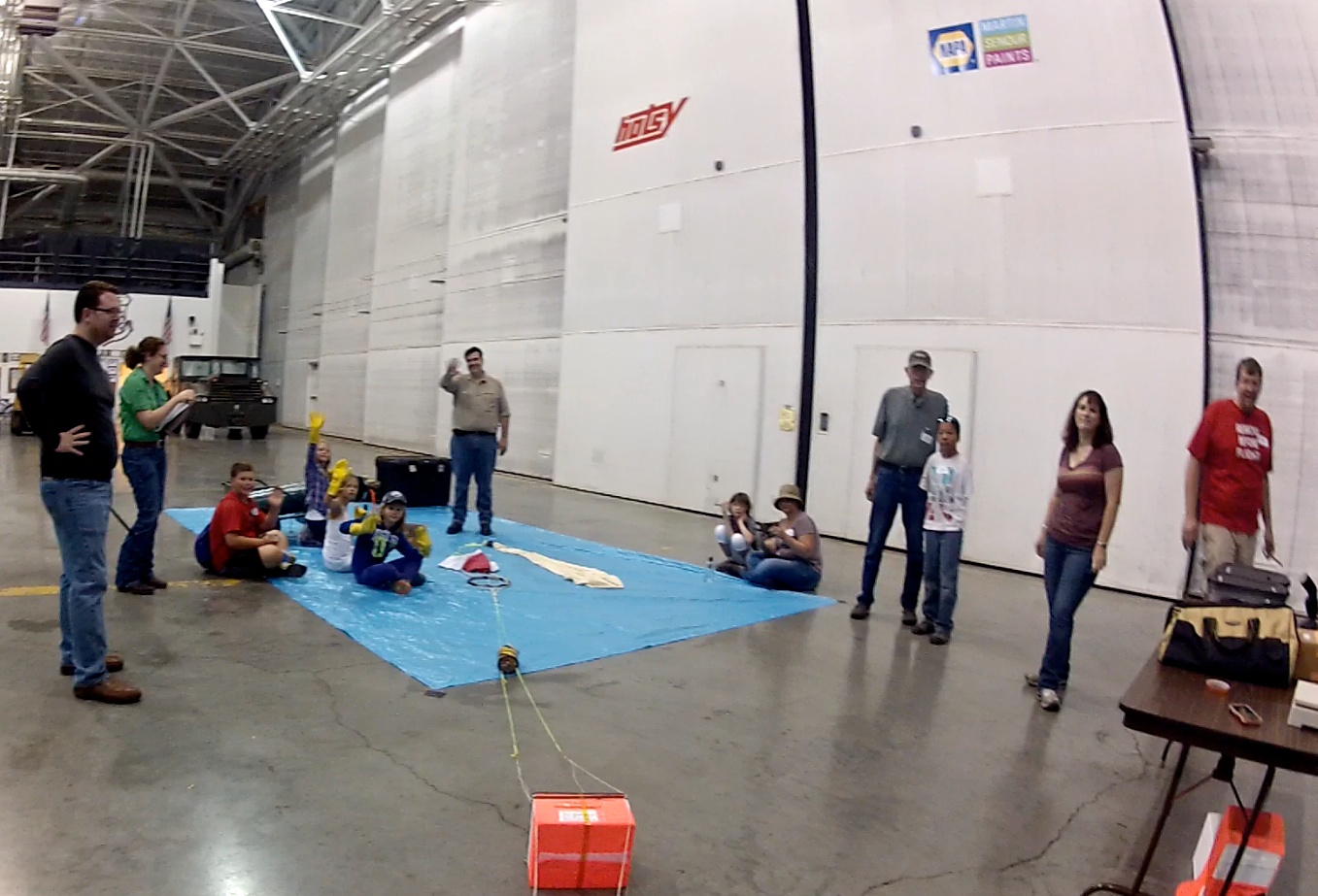
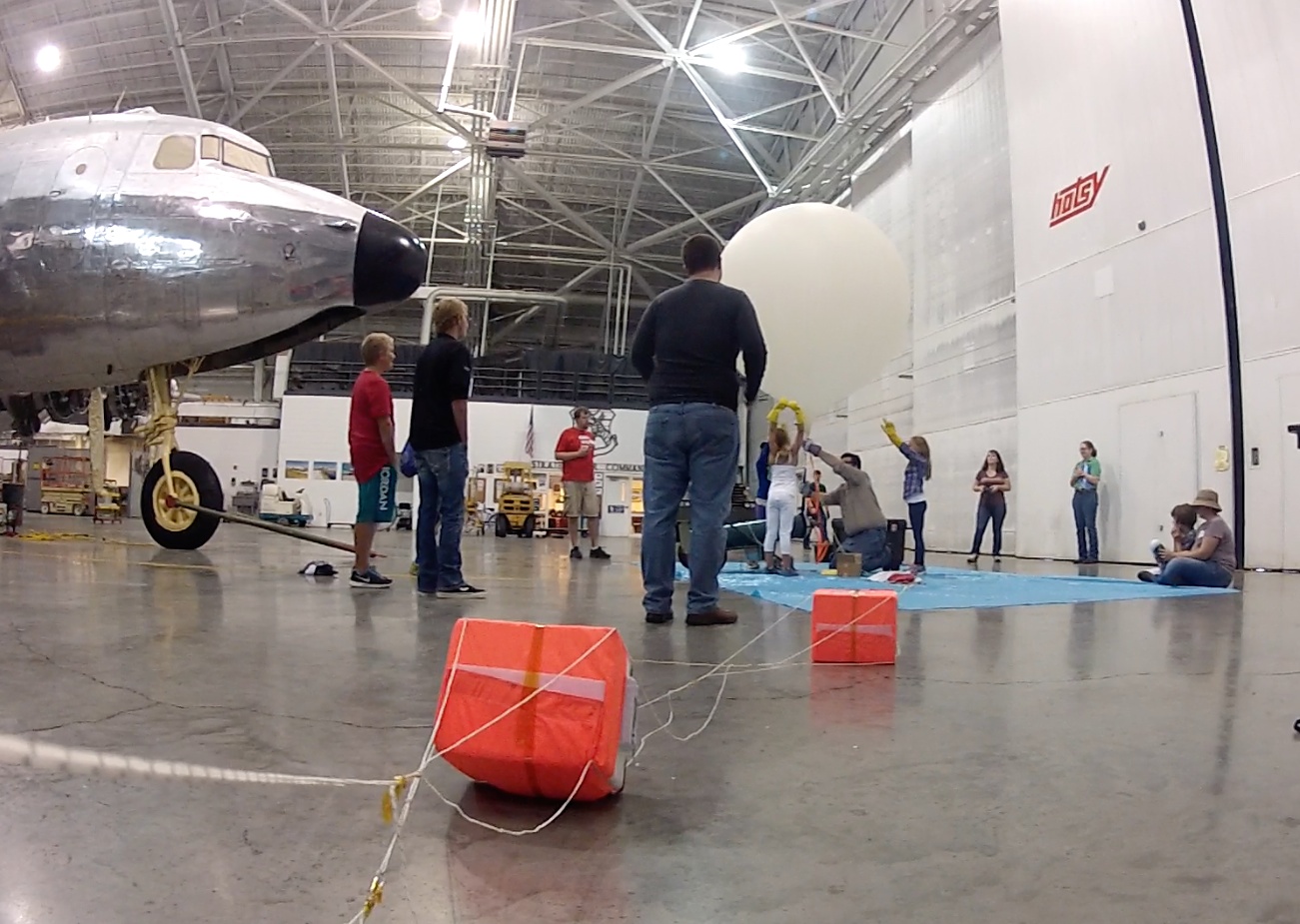
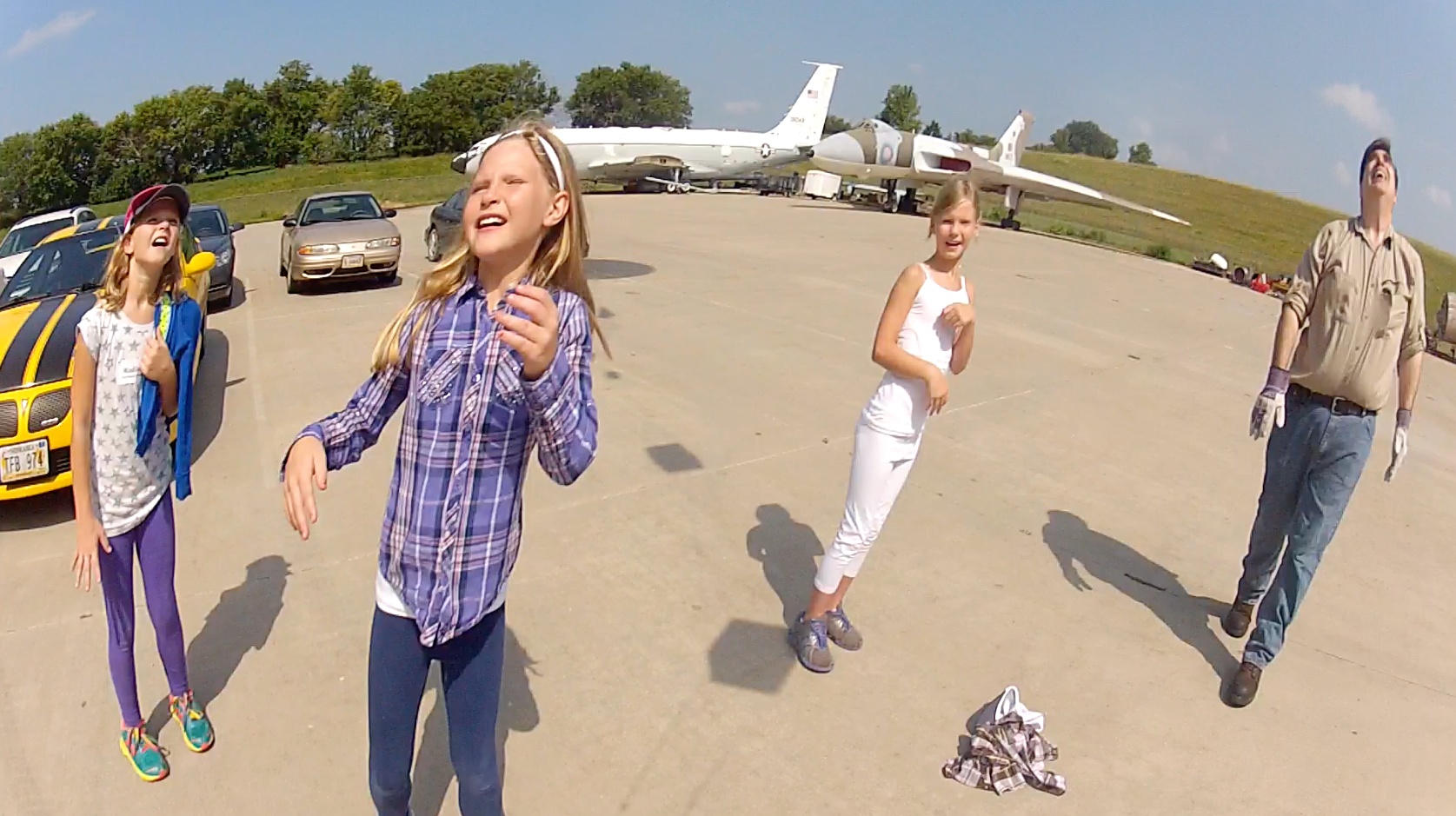
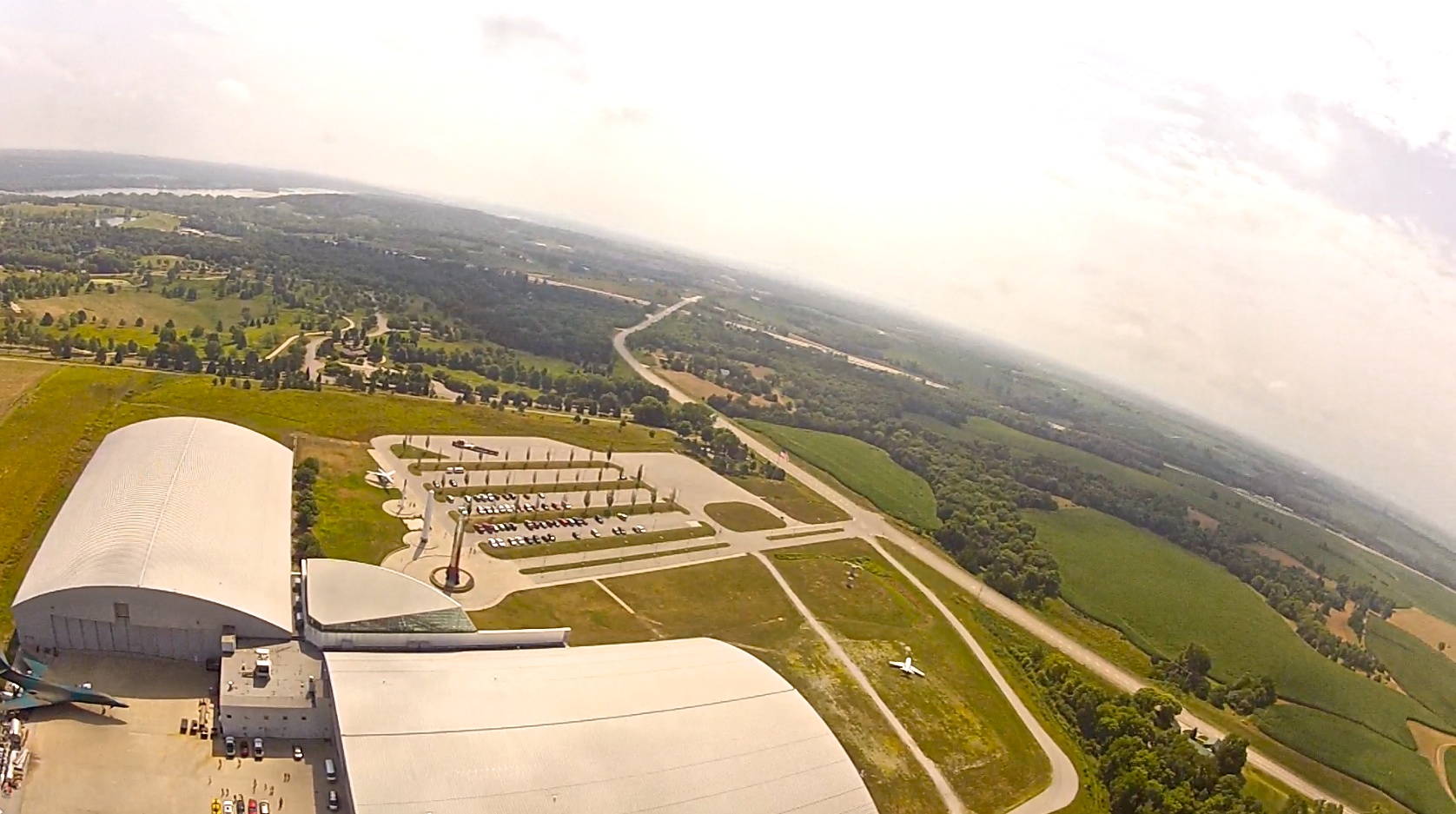
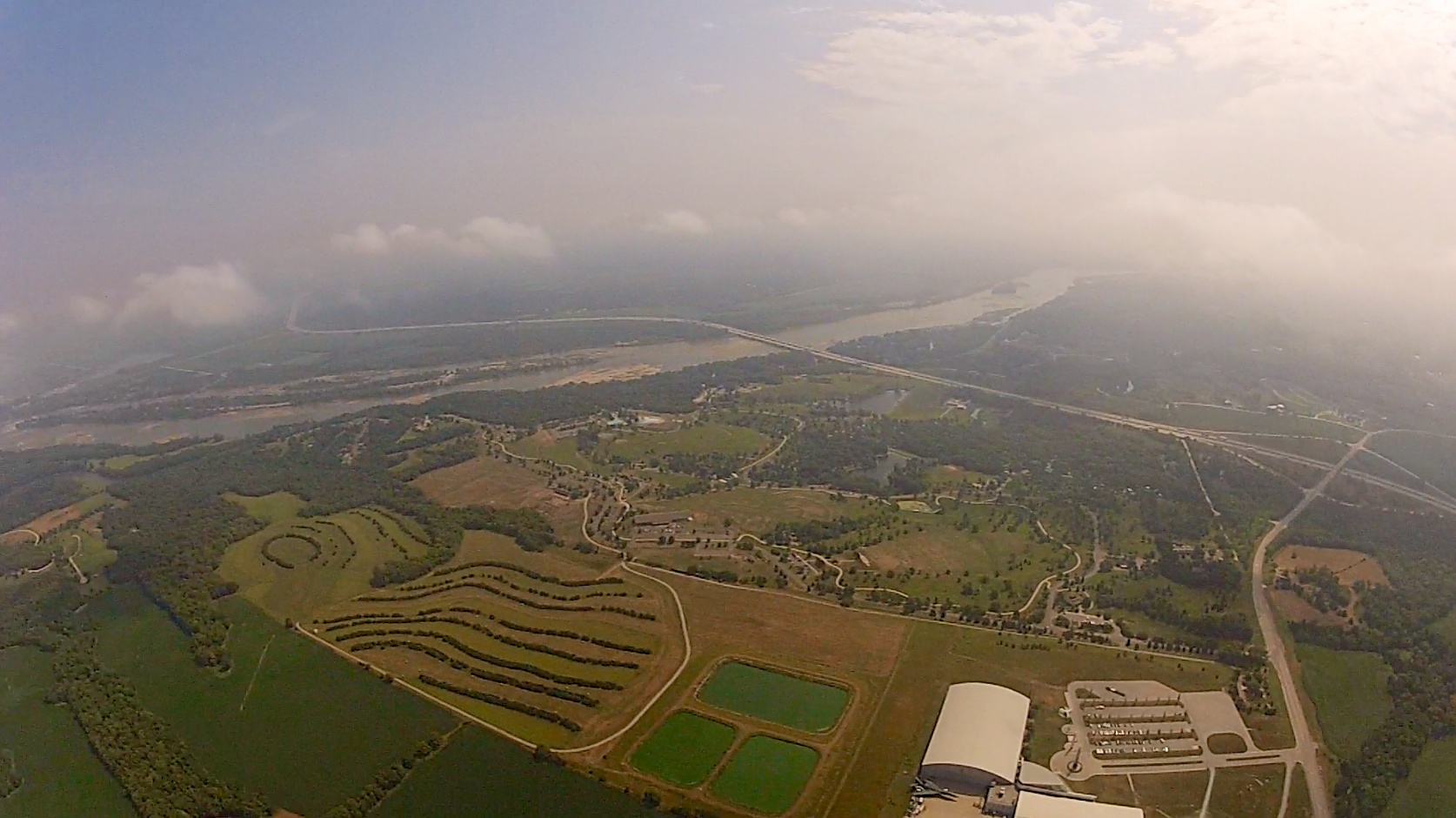
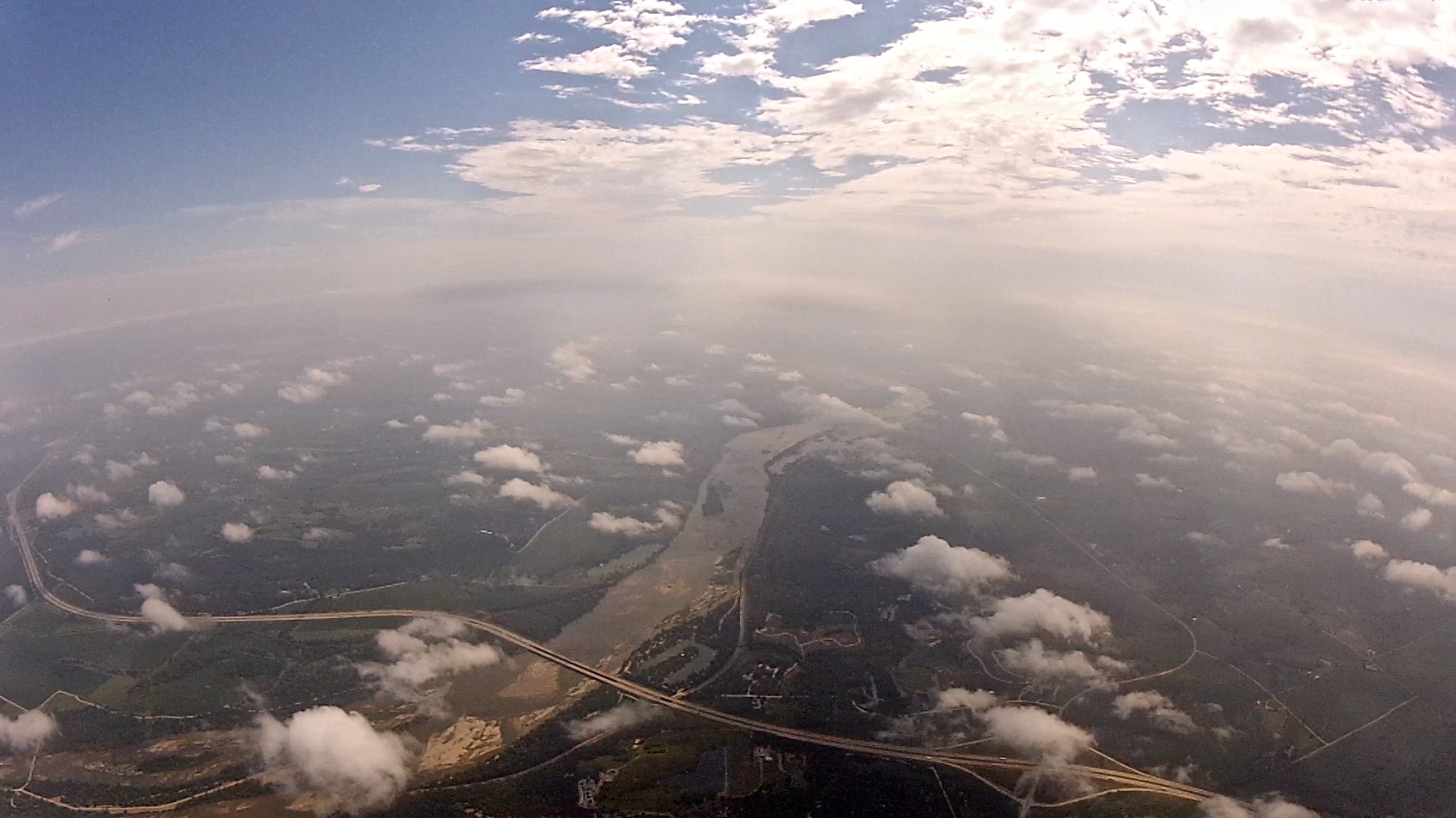
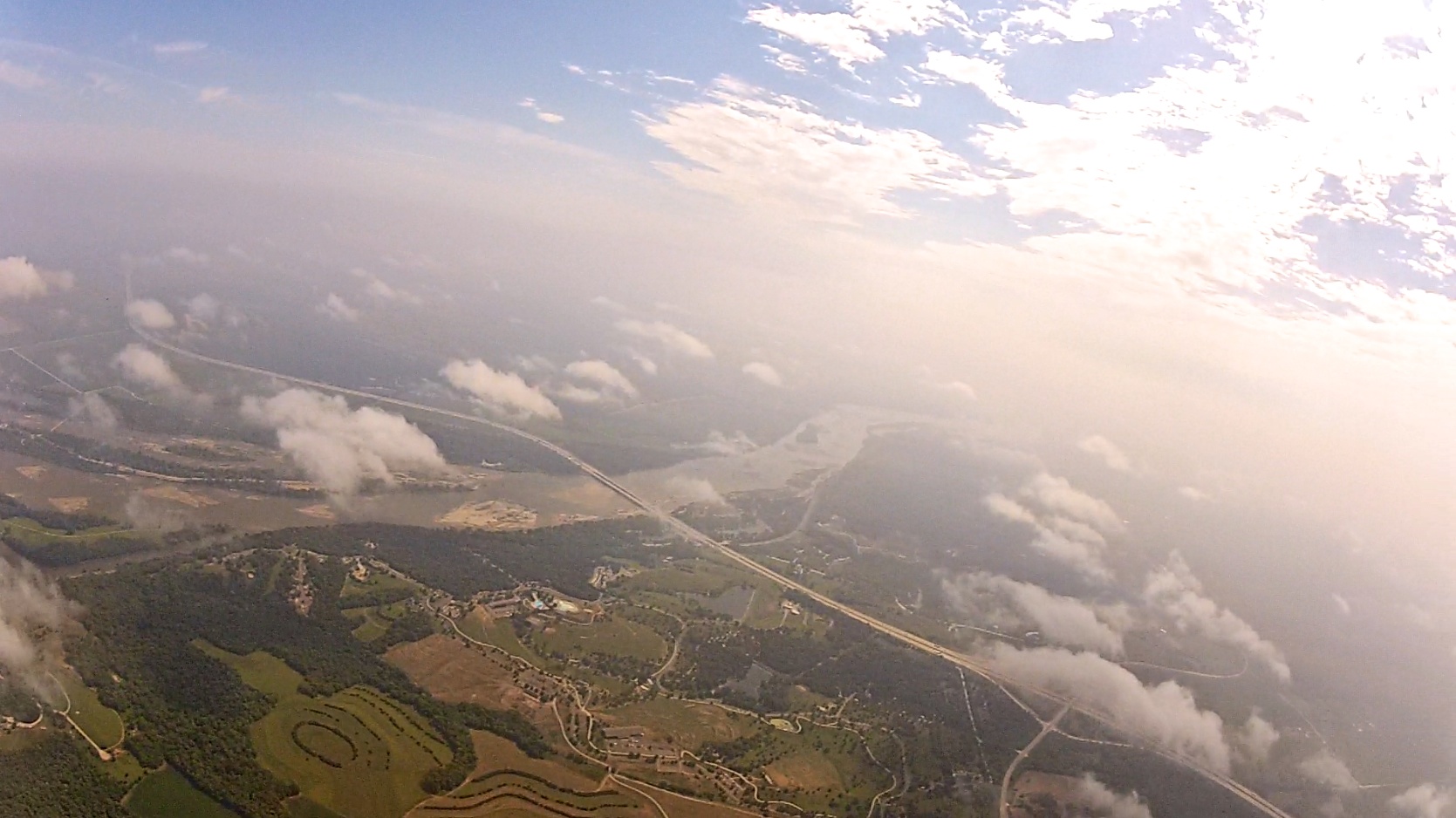
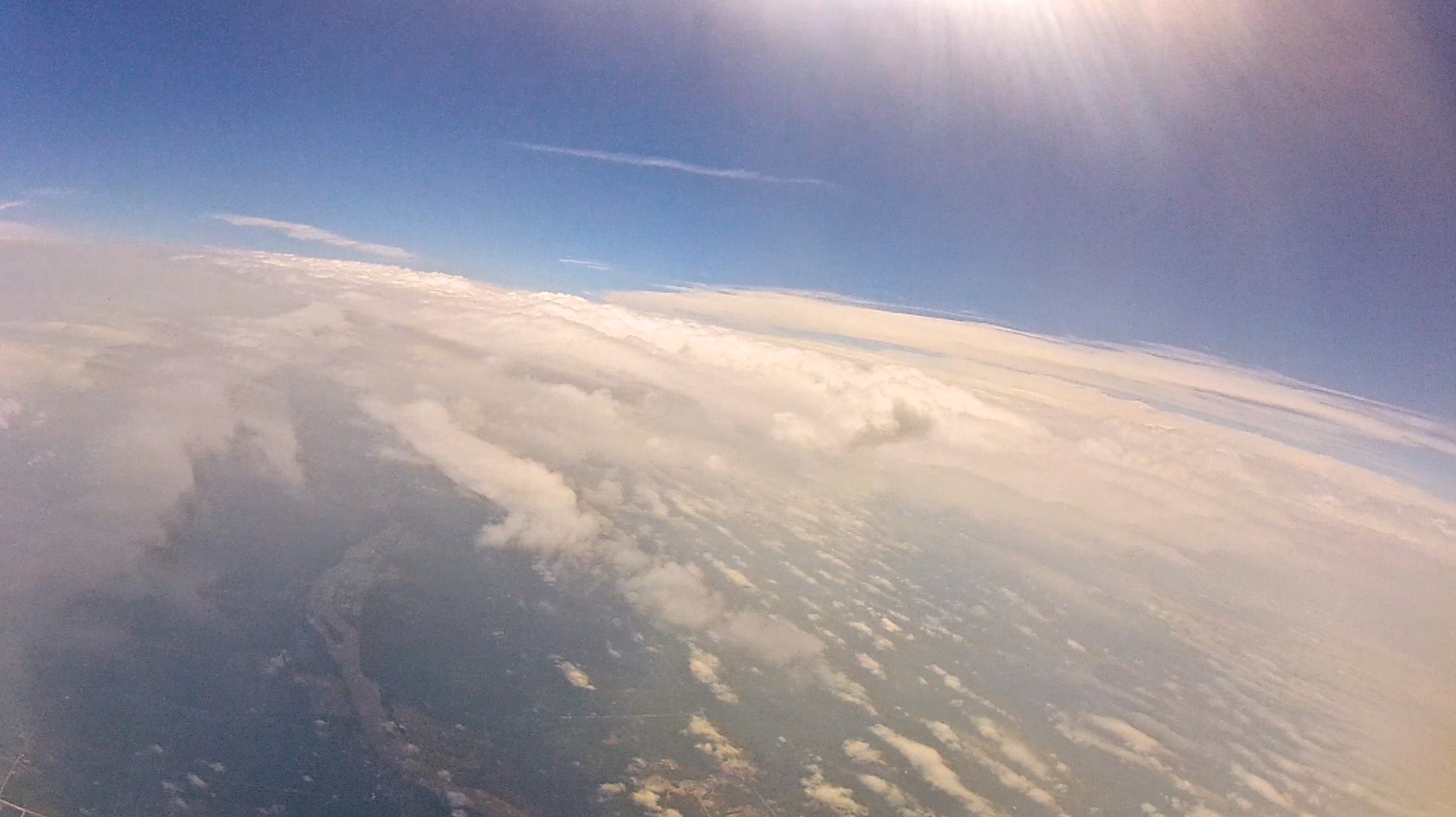
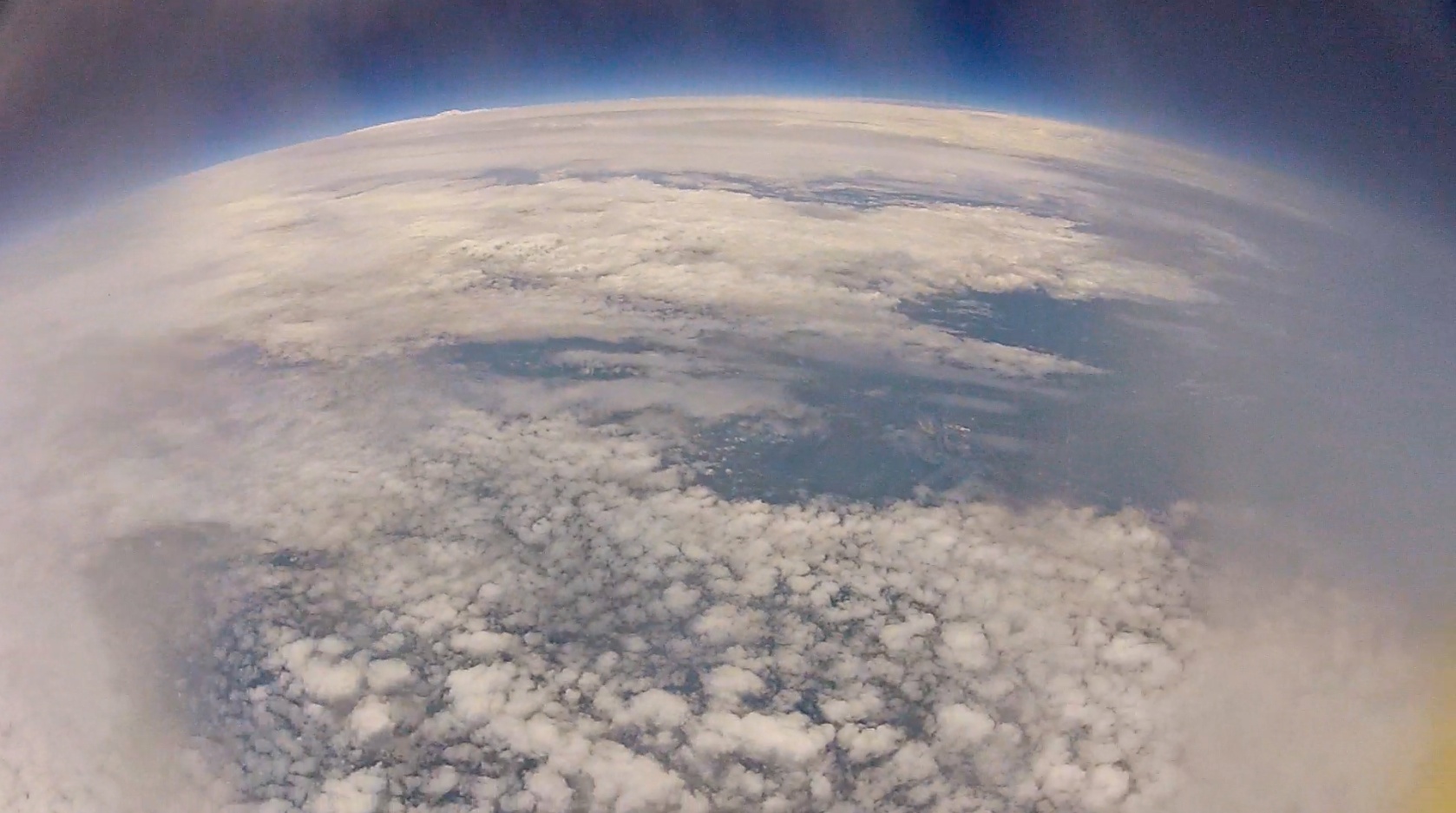
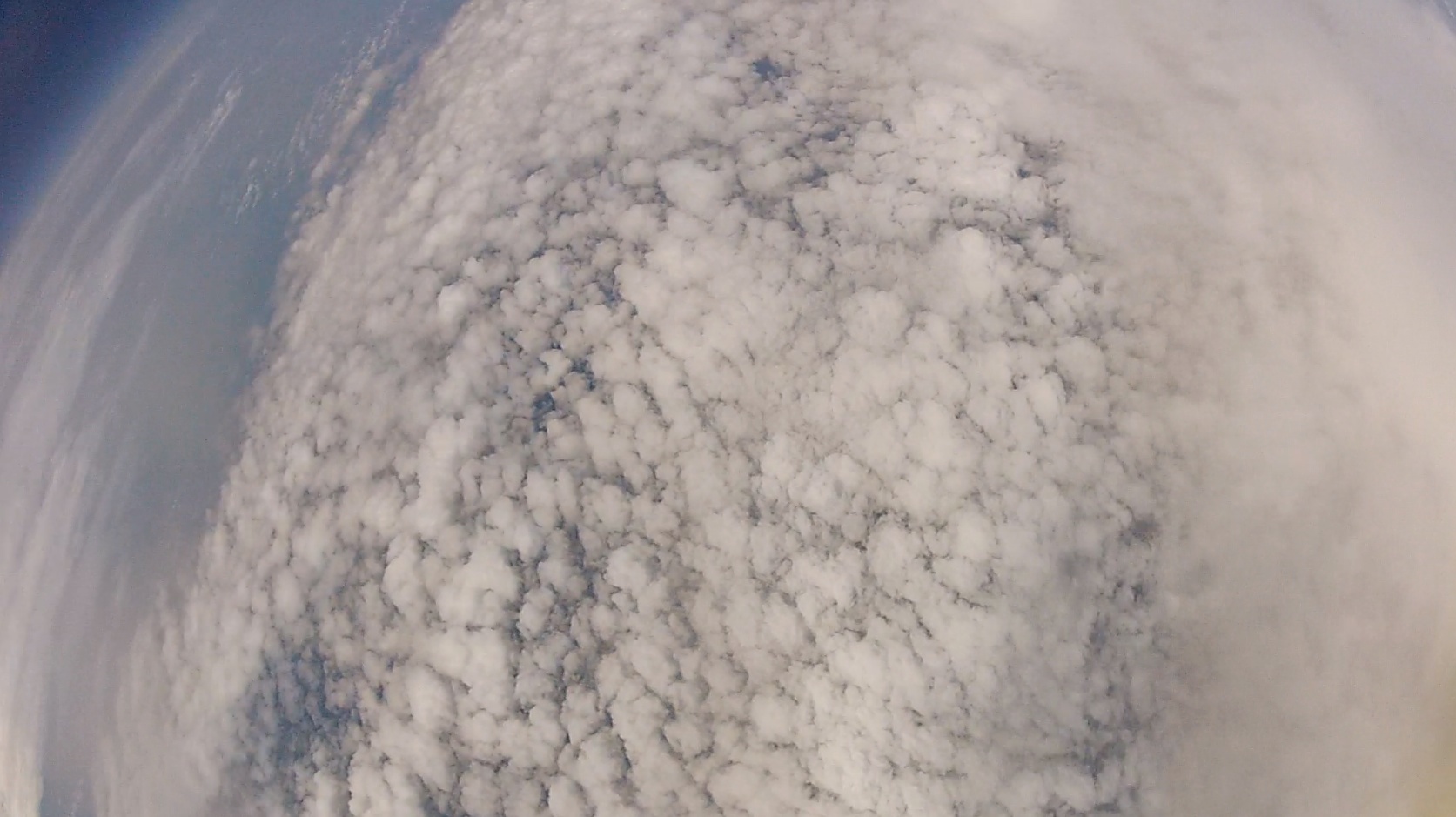

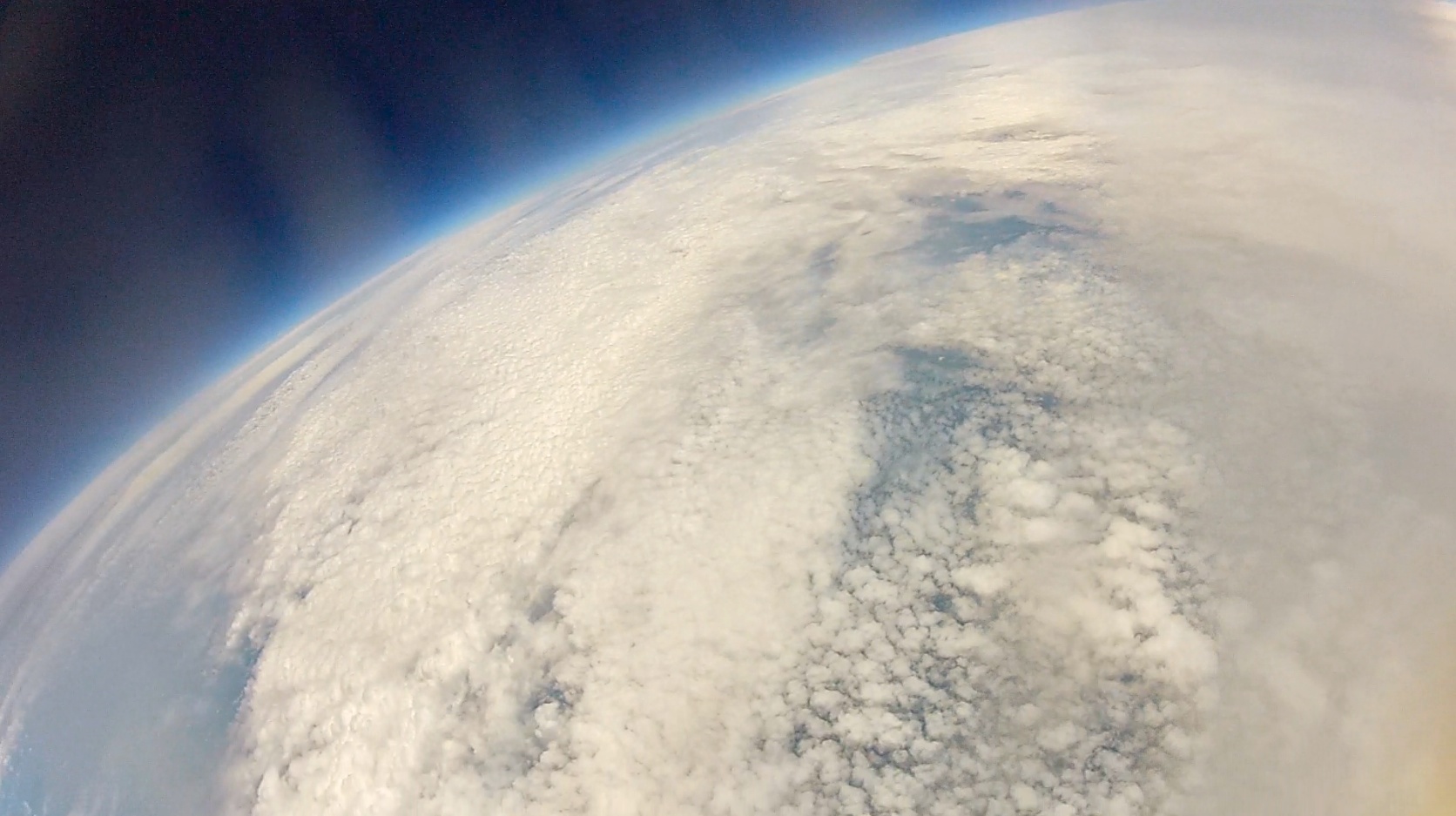
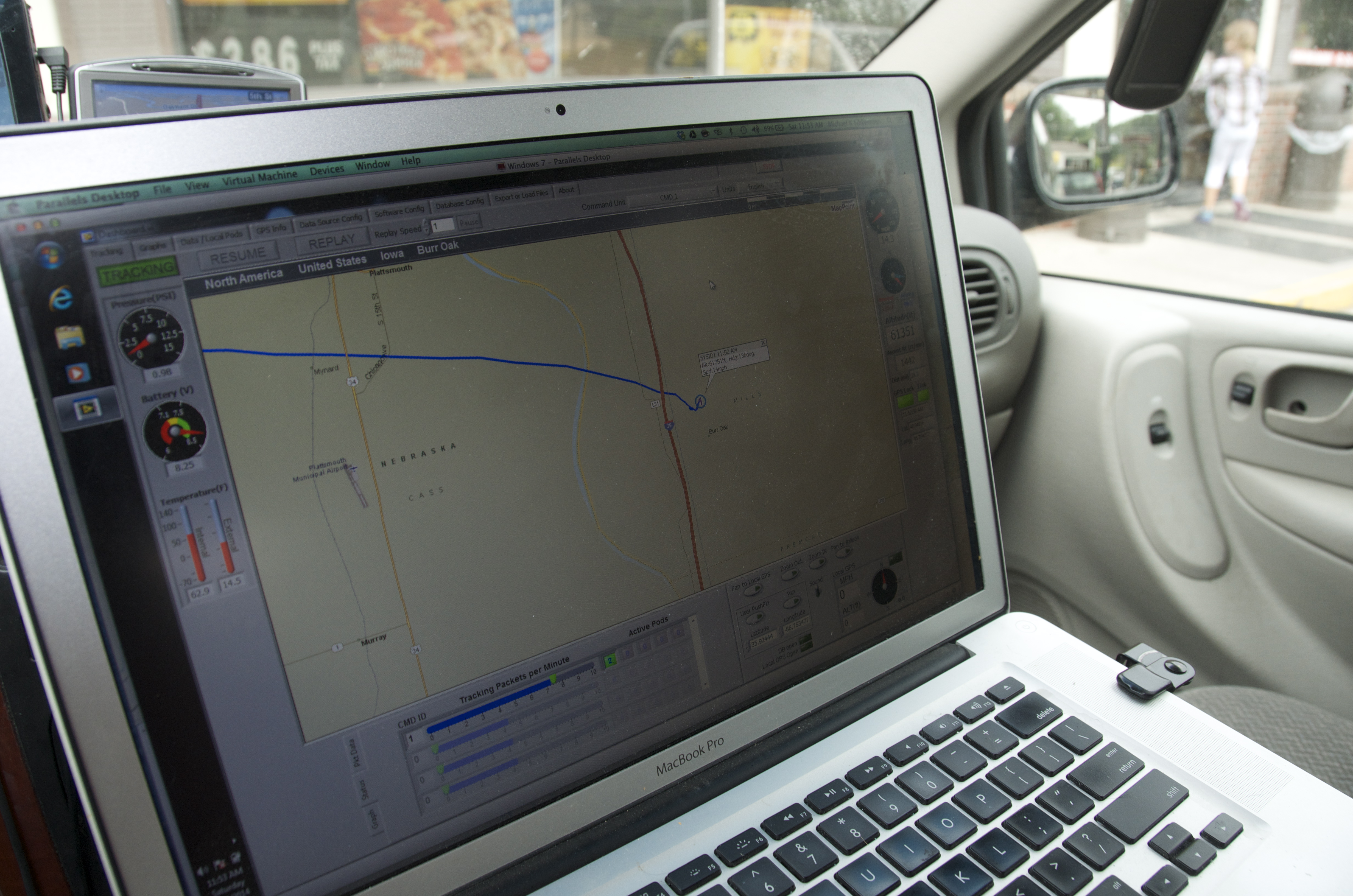
One thought on “Near Space Adventure – 7/26/14”